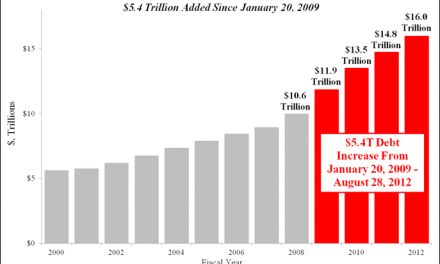By: Robert Zubrin
On June 25, President Obama gave a speech outlining his energy plan for America. The centerpiece is a directive for the Environmental Protection Agency to develop new regulations that will make it virtually impossible to generate electricity from coal in the United States.
This is harmful and absurd for many reasons.
First, by shutting down existing coal-fired power plants, it will effectively destroy trillions of dollars of private property.
Second, since those plants supply about 40 percent of America’s electric power, they will need to be replaced at great cost, which will be borne by ratepayers.
Third, all proposed replacements for coal are significantly more expensive, so using them will drive rates up further.
Fourth, increasing the cost of electric power is one of the most regressive forms of taxation possible, since, for example, stockbrokers making $30 million per year will pay nearly the same additional amount as families making $30,000 per year, despite a thousand fold difference in income.
Fifth, as a form of business taxation, increasing electric rates preferentially targets companies that produce real goods over those that profit through speculation or the collection of legal costs.
Sixth, by increasing the costs of American goods, the inflation of electricity prices will make U.S. industry less competitive, causing factories to shut down and throwing millions of Americans out of work.
And seventh, by depressing the American economy, the plan will cause the loss of massive amounts of federal and state income-tax revenues, thereby accelerating the nation’s descent into bankruptcy.
In addition to all this, the Obama plan will severely harm America by preventing it from becoming secure in its supplies of liquid transportation fuels. Despite some recent growth in oil production and a depressed economy that has reduced U.S. oil consumption by 15 percent since 2007, the United States remains by far the largest oil importer in the world.
Currently we import about 4.4 billion barrels per year, which at a price of $100 per barrel costs the nation $440 billion per year — an amount equivalent to the loss of 5 million jobs at $88,000 per year each.
Furthermore, as a result of this dependency, every time the price of oil goes up, the American economy experiences a major new tax — payable ultimately through the world market to the state-run oil companies of the Organization of Petroleum Exporting Countries — which depresses our economy severely.
This can be seen clearly in the graph below, which compares oil prices (adjusted for inflation to 2010 dollars) to the U.S. unemployment rate from 1970 to the present. It can be seen that every oil-price hike for the past four decades, including those in 1973, 1979, 1991, 2001, and 2008, was followed shortly afterwards by a sharp rise in American unemployment.
As a result of the boom in natural-gas production, the United States now has a way to break this fatal dependency. Natural gas can be used to power automobiles — directly or (more easily) by converting it to methanol and employing it as a liquid fuel in flex-fuel vehicles.
This latter alternative is well understood by our new energy secretary, Ernest Moniz, since he authored an MIT study that supported it. Were the United States to pass a law requiring all cars to be methanol-capable flex-fuel vehicles, or simply repeal EPA regulations that prevent such conversions from being carried out privately, our immense natural-gas capacity could make a dramatic entrance into the liquid-fuel market.
This would not only liberate the United States from its dependence on foreign oil; it would destroy the ability of the OPEC cartel to control prices and extort capital from the world’s industrial nations by constricting the availability of global liquid-fuel supplies.
Obama’s plan, however, is designed explicitly to prevent such a promising development. Rather than being used to compete against foreign oil, the plan commits our natural gas to replace American coal. The cartel will be protected, while our own power industry and manufacturing sector will be wrecked. We will be impoverished, while our adversaries will be enriched.
The plan, however, is justified by the assertion that it will reduce the nation’s carbon emissions. This it certainly will do, by throwing our citizens out of work, so that they will not be able to buy things made of, from, or with carbon. Instead, that privilege will be transferred to those abroad whose profits the plan will increase at our expense.
It is rare thing when a president offers a plan so detrimental to American interests.
— Robert Zubrin is president of Pioneer Energy and the author of Energy Victory. His latest book, Merchants of Despair: Radical Environmentalists, Criminal Pseudo-Scientists, and the Fatal Cult of Antihumanism, was published last year by Encounter Books.







